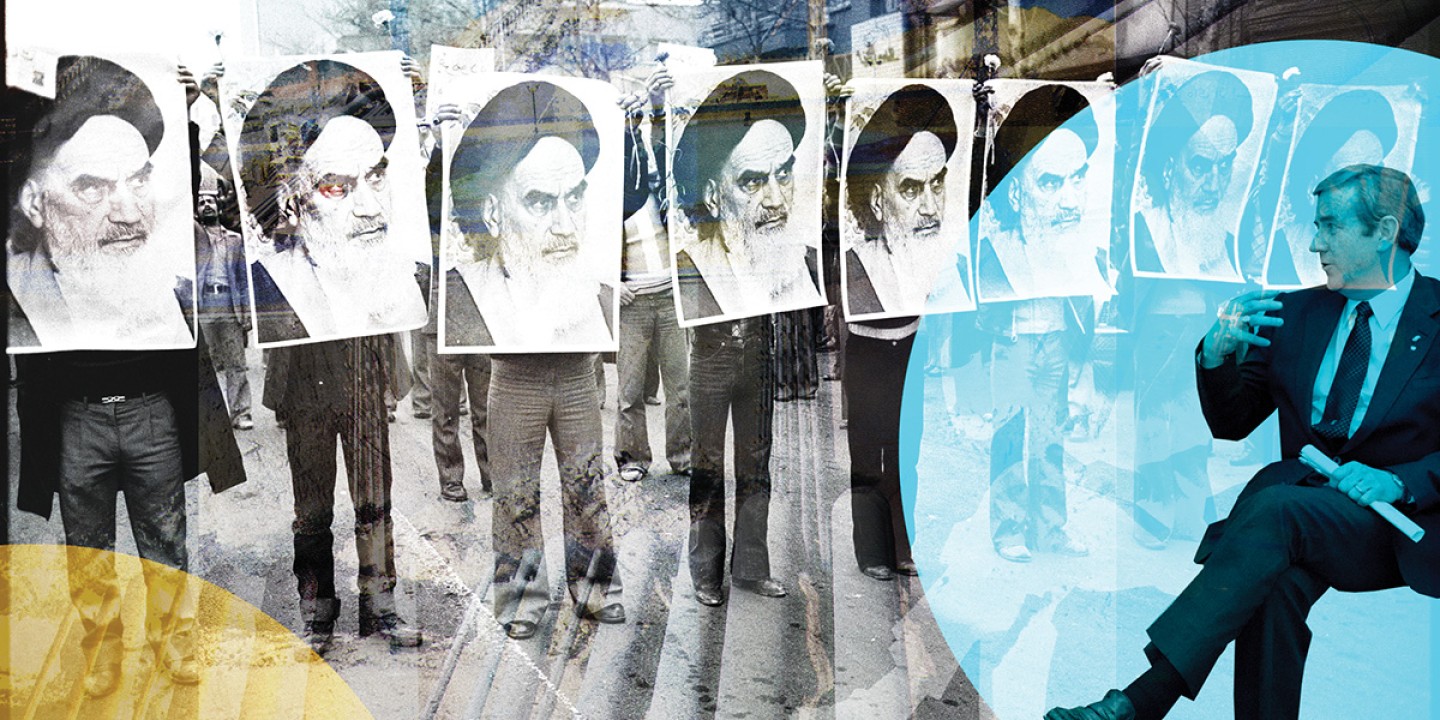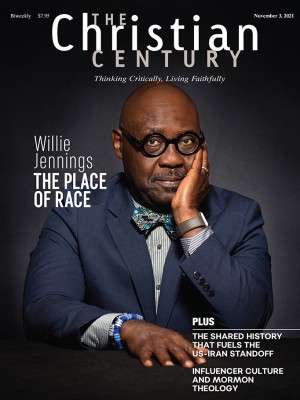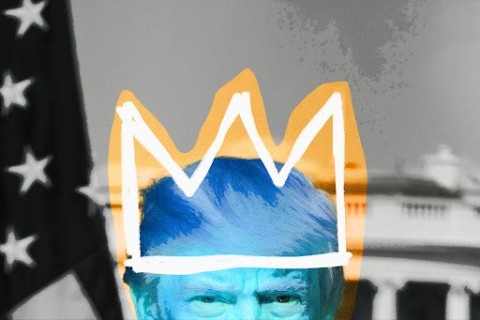The religious fundamentalism that fuels the US-Iran oil standoff
What did the Moral Majority and the Islamic Revolution have in common?

The United States is at a critical moment in its relationship with oil. It is also at a critical moment in its relationship with Iran. As the United States discusses both climate action and its approach to an increasingly hostile Iranian regime, it’s important not to overlook something the two countries have in common: a history of religious fundamentalism intertwined with the economy of oil.
When I talk about fundamentalism, I am referring to religious groups, especially those that have emerged since the 1970s, that define themselves using militant terms or embrace militant strategies (including a strictly policed, patriarchal moral code) in their effort to preserve what they see as an uncritical, high view of their scriptures. However different the United States and Iran are, they share this history: a decade of turmoil in the 1970s, centered around oil, that ended in a resurgence of fundamentalism of this sort.
Read our latest issue or browse back issues.
In 1979 Jerry Falwell founded the Moral Majority. That same year, the Islamic Revolution in Iran helped to sever formal relations between the two countries. Since then, the troubled relationship has continued. The US religious right has consistently pushed to deepen our dependence on oil and other fossil fuels while also urging a harder and harder line on Iran. This culminated in President Donald Trump’s removal of the United States from a negotiated nuclear deal, following a pattern that Falwell established in the 1980s.
In Iran, leaders have struggled to make the most of an oil-based economy while also moving farther to the right politically. Most recently, Iran elected the far-right cleric Ebrahim Raisi as its president in what outside observers saw as an unfair election. Raisi has advocated continuing Iran’s support for militant groups throughout the Middle East, including the Houthis in Yemen, Hezbollah in Lebanon, and Hamas in Palestine.
To understand the connection between the rise of the religious right in the United States and the Islamic Revolution in Iran, we might start with the international oil embargo of 1973–1974. In 1960, Iran became one of the founding members of the Organization of the Petroleum Exporting Countries, an economic cartel formed in response to developed countries in the West and their attempts to control the oil supplies of less-developed countries. Iran, Iraq, Kuwait, Saudi Arabia, and Venezuela came together to make an economic pact that would allow them to control their own oil industries. Not incidentally, four of the five countries in OPEC are in the Middle East and historically have objected to the actions of Israel in relation to the Palestinians. The United States, on the other hand, has consistently been seen by OPEC as disregarding Palestinian rights in favor of an unconditionally pro-military, pro-expansionist position for Israel.
During the three-week Yom Kippur War in 1973, the United States armed Israel against Arab states that were attacking it. To punish America for what OPEC countries saw as further delegitimizing Palestinian rights and the goal of Palestinian statehood, OPEC issued an oil embargo.
While America’s geographical distance from the Middle East had long protected it, the realities of engaging in the region’s complex politics now came right into people’s homes. With no oil coming in from the world’s main oil-producing countries, energy prices quadrupled almost overnight. The cost of shipping goods to stores increased, so the cost of the goods themselves did, too. During the 1970s, inflation soared into double digits, while workers who did not face layoffs sometimes did not receive their full paychecks. In short, the OPEC embargo caused the US economy to all but collapse.
In late 1973, Jerry Falwell began declaring that the OPEC embargo was the wrath of God on America. He railed against American moral failings, including recent gains in rights for women, African Americans, and the LGBTQ community. He warned of the destruction to come. His solution was that America had to “return” to what he saw as biblical morality: outlawing pornography, executing drug dealers, and reversing the gains made by liberation movements during the 1960s. It also included a wide array of policy stances, including supporting the nuclear buildup against the Soviet Union, ending welfare programs, and reducing taxes and regulation on business. All of this was frequently couched in apocalyptic terms about God’s plan for the end of time.
Later analyses have shown that despite the Moral Majority’s extensive advocacy for “pro-family” positions, most people who supported Moral Majority politicians based their votes instead on economic issues. “Biblical morality” was in no small part an economic agenda. According to Falwell, God was heavily invested in America’s economic matters and had sent the OPEC embargo as a wake-up call. The embargo and the ensuing energy crisis and economic collapse were foundational to the formation of the religious right.
Things get more complicated when we recognize that Falwell and the religious right in America had long been funded by oil companies. I call this the fundamentalist-oil empire, a vast network of fundamentalist enterprises whose initial endowments came from oil money. Both The Fundamentals and the Bible Institute of Los Angeles (now Biola University) were funded by the oilman Lyman Stewart in the early 20th century, when he was locked in a struggle against the titan of oil, J. D. Rockefeller.
In the mid-20th century, J. Howard Pew, whose family owned the Sun Oil Company, provided the funds for the journal Christian Economics, which championed unregulated capitalism, as well as for Christianity Today. Other institutions in the fundamentalist-oil empire include Fuller Seminary and Oral Roberts University; although Fuller Seminary, like Biola, has come to embrace a broader and more inclusive evangelicalism, it was originally funded by the radio evangelist and oilman Charles Fuller. Falwell credited Fuller’s radio show with his conversion to fundamentalist Christianity and styled his own show after it. In short, the development of the religious right was part of a broader history of Protestant fundamentalism in the United States funded by the oil industry.
The OPEC embargo lit the flame for fundamentalist leaders like Falwell to make their economic agenda public and perhaps engage a voting bloc that could turn that agenda into public policy. While backlash against the liberation movements of the 1960s was certainly significant in the formation of the religious right, the economic collapse caused by the OPEC embargo allowed Falwell and others to engage large swaths of the American public who may not have been keen on their efforts to preserve segregation and keep women at home.
Meanwhile in Iran, oil had been the center of the country’s economy since the early 20th century. The Qajar dynasty (1789–1925) had driven Iran to the brink of bankruptcy, and by the turn of the 20th century the shah was selling off Iran’s assets in an effort to secure some revenue. One asset that the shah sold off was Iran’s oil—all of it. A contract called the D’Arcy Concession, signed in 1901, gave a British man named William D’Arcy, and later the British government, the exclusive right to any oil that might lie under Iran’s surface. Turns out there was a lot of oil, enough to fuel the British navy to victory in both World Wars.
The Anglo-Persian Oil Company was formed to extract the oil. APOC—which was soon taken over by the British government and later became British Petroleum, or BP—paid workers a pittance to live in inhumane conditions and work themselves to death, while also paying a small royalty to the Iranian government. Some researchers have suggested that because of the oil industry, British control over Iran was so strong that the country’s final shah—Mohammad Reza Pahlavi, who reigned from 1941 to 1979—functioned as a puppet of the British government. Already an unpopular figure, the shah became even more despised after a 1953 US-backed coup ousted Mohammad Mosaddegh, Iran’s first democratically elected prime minister, in order to shore up the shah’s power. Mosaddegh’s campaign platform? He would take control of Iran’s oil industry away from the British.
The factors that led to the 1979 Islamic Revolution in Iran are complex and by no means universally agreed upon by scholars. But as with Falwell’s Moral Majority, we can see both religious and economic elements.
Clerics opposed the shah for introducing reforms. Just as Falwell believed that the liberation movements of the 1960s were un-Christian, the clerics saw the liberalizing actions of the shah as contrary to Islam. And just as Falwell saw the OPEC embargo as the wrath of God, the clerics saw Iran’s relation to APOC as corrupt. Many vehemently objected to the role the shah had played in the coup against Mosaddegh.
Ayatollah Khomeini, who would become a galvanizing figure for opposition to the monarchy, opposed the shah for all these reasons. In addition, he believed the shah was too friendly with Israel, at the expense of Palestinian dignity. Around the time that the United States chose to arm Israel against calls for Palestinian statehood, protests against the shah turned deadly. Police and the military opened fire against civilians. The ensuing upheaval led to the Islamic Revolution in 1979, the deposing of the shah, and the beginning of the long-standing breakdown in US-Iranian relations.
In the United States, oil has long been at the center of our political discontent, and we are only now even beginning to make an effort to end our dependence on foreign oil.
We have seen where a Christian fundamentalist response to Iranian fundamentalism has led: a deadly stalemate in which Iran increases its nuclear capacity and strengthens militant groups throughout the Middle East, while America unilaterally supports the militant Israeli expansion that fuels these groups’ ire. Brutal wars in Syria and Yemen, supported by Iran’s militant interests and often serving as proxy wars between different oil interests, have devastated an entire generation of children. In the United States, we see a refusal to disengage from the oil that financed the early fundamentalist movement and still underpins our economy, while creating wars in places like Iraq and Afghanistan in part to protect our access to the region’s oil. America’s fundamentalist response to Iran’s fundamentalist government has led to a Middle East that is in as much catastrophe as our climate is.
What would a non-fundamentalist Christian response to Iran look like? Could Christians play a role in opening up a diplomacy that might involve mutual benefit, compassion for the suffering of Iranian citizens, and cultural exchange?
While there are many causes for our poor relationship with Iran, a better trajectory begins with ending our dependence on oil. We cannot merely end our dependence on foreign oil, as if national oil were the answer to America’s energy challenges. Depending on oil at all, foreign or national, drives climate change; it is also a significant driver of fundamentalism. Dependence on oil feeds an apocalyptic worldview. It limits our ability to plan for a thriving future. It is a source of fear.
This arena is where we can bring non-fundamentalist Christian values into the political sphere in ways that can productively shape American relations with Iran. Not incidentally, the values that are necessary to ending our dependence on oil are exactly those that Jesus highlights in the Sermon on the Mount and the parable of the Good Samaritan. We begin by practicing integrity and humility in the form of encouraging our churches, public institutions, and elected leaders to reject funding from oil dollars and divest from the oil industry. Compassion may take the form of joining with advocates in low-income communities who are asking for access to clean, renewable energy.
If we can apply our Christian values to help America end its addiction to oil, we can then encourage diplomatic relations with Iran in which oil is not part of any negotiations. Those same values can take precedence in navigating the murky waters of opening formal American-Iranian relations for the first time in four decades. What might values-based diplomacy look like with Iran? It begins with the principles of interfaith dialogue: appreciating Iranian culture and the people’s strong connection with their Persian heritage and, for many, their Islamic beliefs. The corollary is rejecting any form of colonialism: we must refuse to exploit Iran or any other country for short-term economic gain.
We can then work to address human rights violations while also working to correct the systemic injustices in our own country. We can resume negotiations to limit nuclear capacity, including in our own country. We can support grassroots industries that enhance human flourishing in communities rather than enriching oil cartels. We can encourage partnerships that lead to creative problem-solving and innovation, especially regarding climate change and economic development. And where necessary, we can provide humanitarian support to lift communities out of poverty and enhance the quality of life for vulnerable populations.
Restoring relations with Iran in a manner that is values-based and oil-free will necessarily include recognizing Palestinian rights and seeing Palestinian people as created in the image of God. Otherwise, the ones that continue to take up their cause will be militant regimes, such as those that are currently supported by Iran.
We can begin promoting social justice in Iran and some of the most troubled places in the world when we are engaging with our values rather than with our need for oil.
Bringing our values as Christians into the political arena is always a challenge, especially as we seek to act with wisdom rather than naïveté. How can we wisely show compassion when dealing with state-sponsored terrorism? How can we show humility in the face of a nuclear threat? But if our faith compels us to move beyond fear and engage with the deeper challenges of social justice, then we have the opportunity to find ways to practice these values, even in the political minefield of restoring diplomatic relations with Iran.
When Jesus said, “Blessed are the poor in spirit, for theirs is the kingdom of heaven,” he wasn’t giving political advice for American diplomacy. As Christian voters, though, we can bring values such as integrity, honesty, courage, accountability, humility, and compassion into the process of democratic engagement—including how we talk with our neighbors and our elected officials about Iran. The United States might never become poor in spirit or inherit the kingdom of God. But we as US citizens and Christians might become a blessing to the people of Iran.
A version of this article appears in the print edition under the title “Fundamentalism and oil.”




